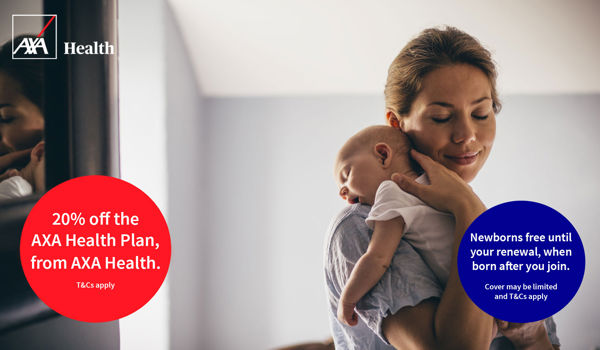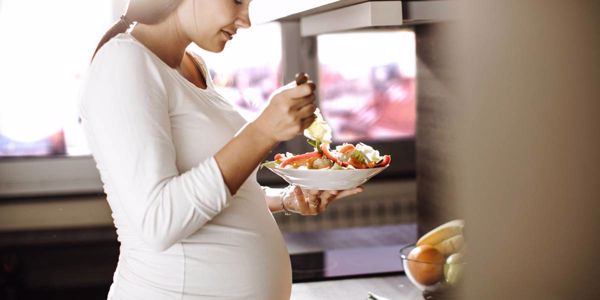When you think of pregnancy, you’re likely to think of the weird and wonderful pregnancy cravings some might experience. But, what about those who find themselves peering into the fridge, only to realise that nothing seems appetising anymore?
If you're experiencing appetite loss during pregnancy, you're not alone. In fact, it's more common than you might think. We're here to break down why you might be experiencing appetite loss, how you can manage it and when to seek help.
Why Am I Experiencing Appetite Loss?
Loss of appetite is a fairly common pregnancy symptom, with studies showing a range between 50-70% of women having some form of appetite loss or food aversion.
While most food aversions won’t lead to harm and tend to go away after a few weeks, there are some cases where they can significantly reduce your ability to eat, which can be distressing and exhausting.
We asked Kate Hilton, Clinical Dietician, for her top tips for managing appetite loss during pregnancy.
How Can I Manage Appetite Loss?
Choose Cold Meals Over Hot Meals
Cold meals and snacks, rather than those which have to be warmed up, tend to be much better tolerated as the smell is often less overpowering than a hot meal. This could include things such as sandwiches, cereals, yoghurt bowls, veggie sticks and dip, apple dipped in peanut butter, pasta or chicken salads or hard-boiled eggs.
Equally, ensuring these foods are not overly spiced or sauced and are on the blander side, can make eating much easier to tolerate and will be less likely to trigger nausea.
Eat Little and Often
Eating little and often is often a better idea than trying to have 3 main meals each day, as not only do most women find that trying to fit in large portions triggers their nausea, but allowing themselves to get too hungry will do the same.
When you wake up, it’s a good idea to have a small, dry snack, such as a cracker, slice of toast, popcorn or a ginger biscuit before getting out of bed and nibbling on these throughout the day can keep the nausea at bay.
Find Alternative Options
Don’t worry about not being able to eat certain foods right now. Instead, find swap equivalents for foods you don’t like, which can give you similar nutrition. Don’t like any form of meat? Try eggs, tofu, Quorn™, beans or lentils instead, as these provide some protein and similar micronutrients like iron. Not a fan of Brussels sprouts or broccoli? Opt for milder-tasting veggies instead, like carrots, peppers or cucumber, which still provide some fibre and good micronutrients.
Drink Your Nutrition
Try drinking some of your nutrition. Having a fruit smoothie, made with 1-2 portions of fruit, some high protein Greek yoghurt, some nut butter or chia seeds and perhaps even some oats can often be better tolerated than physically eating these foods, and can give you a good whack of calories and protein.
If the dairy is too much for you, switch it for a soya alternative fortified with calcium and iodine. These smoothies can be sipped throughout the day, and don’t have to be drunk all at once!
When Should I Be Worried?
Generally speaking, food aversions and lack of appetite is nothing to worry about during pregnancy. However, for a small number of women, the symptoms they experience are quite extreme and can lead to significant weight loss and dehydration.
If you find you can’t eat enough to maintain your weight, if you are unable to keep down enough fluids, or if your vomiting is severe, speak to your GP or healthcare provider.
Generally, however, a loss of appetite is normal, and as long as you can keep hydrated, maintain your weight and take your pregnancy multivitamin, there should be little cause for concern.
Read more: What To Eat During Pregnancy




